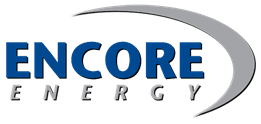


enCore Energy Corp. (NYSE-American: EU;TSXV: EU) (the “Company” or “enCore”) announced today the acquisition of all of the proprietary Prompt Fission Neutron (“PFN”) technology and equipment, including related exclusive intellectual property, and global licensing rights from Energy Fuels Resources (USA) Inc. (“Energy Fuels”), a wholly owned subsidiary of Energy Fuels, Inc. The use and ownership of PFN technology provides enCore with a clear competitive advantage by providing close to real time assays for uranium that cannot be achieved using conventional coring and assay methods. This technology is unavailable to many other uranium exploration and development companies.
The PFN equipment and technology acquired by enCore for $3.1 million USD includes:
- Associated proprietary intellectual property, including all internal details of the tools, circuit board diagrams, firmware code, software, manuals, instructions;
- The sole right to utilize the license of the PFN technology globally;
- Six PFN downhole wireline probes;
- Nine gamma downhole wireline probes with single point resistivity, spontaneous potential and deviation;
- Two low-mileage, heavy-duty logging trucks with logging and associated equipment;
- Power supplies, computers, communication equipment, and other technology.
Paul Goranson, enCore’s Chief Executive Officer, said, “PFN technology is far superior to traditional downhole gamma measurements where an array of different elements emits a collective gamma signature which may or may not correlate well with the actual uranium content. We have already seen the benefits of the technology in the past with reliable uranium resource estimates derived from PFN that were confirmed by historical production results. We are using this proven PFN technology right now as we install our production patterns in our soon to be producing wellfields.”
PFN technology is critical to successful in-situ recovery (ISR) uranium project development as it directly measures downhole U3O8 ore grade versus traditional Total Gamma and Spectral Gamma methods which measure radioactivity emitted from a variety of elements associated with uranium. This is particularly applicable at enCore’s South Texas properties where in-situ geochemical conditions allow some of the radiometric components, such as uranium, to be out of equilibrium with their gamma signatures. The same conditions occur elsewhere in the United States including some deposits in Wyoming.
enCore currently uses PFN technology in its delineation of ore bodies in anticipation of installing production wellfields at the Company’s South Texas Rosita and Alta Mesa ISR Uranium Projects. Energy Fuels retains the right, subject to availability, to purchase, lease, and/or license at least one fully functional PFN Tool and all related and/or required equipment, technology and licenses as may reasonably be requested solely for their use, for a period of up to 20 years.
The Benefits of PFN (Prompt Fission Neutron) Technology
PFN technology has played an important part in the development and advancement of uranium projects in the United States and South Australia. enCore’s Alta Mesa ISR Uranium Project in South Texas, produced 4.9 million pounds of U3O8 between 2005 and 2013 from wellfields and mineral resources identified and measured using this PFN technology.
Many geologically younger ISR uranium deposits in the United States, and particularly in South Texas, have a certain degree of disequilibrium. Consequently, the radioactivity measured in drill holes using traditional Total Gamma and Spectral Gamma methods does not accurately correspond to ore grade due to the continued decay of uranium daughter products including potassium, thorium, lead and bismuth relative to radium (Ra226), a significant gamma emitter. Traditionally, disequilibrium is calculated using mud rotary coring techniques and laboratory gamma and alpha spectrometry, all of which are expensive and time consuming. Without accurate in-situ measurement of uranium, significant high-grade ore has been missed using traditional downhole techniques. PFN technology solves this issue by instead using neutron activation to detect uranium in drill holes. The PFN tool creates very fast neutrons (14MeV) and fires 108 neutrons per second. The neutrons emitted by the PFN tool excite, at an atomic level, in-situ uranium atoms in the drill hole creating fast (epithermal) neutrons and slow (thermal) neutrons. The ratio of epithermal to thermal neutrons is proportional to uranium allowing the U3O8 ore grade to be accurately calculated. This provides a relatively inexpensive and instantaneous means for accurate assaying in-situ ore grades over large areas and allows for accurate ore body mapping, resource estimation, and wellfield planning.
About enCore Energy Corp.
enCore Energy Corp. is committed to providing clean, reliable, and affordable domestic nuclear energy by becoming the next United States uranium producer in 2023. enCore solely utilizes In-Situ Recovery (ISR) for uranium extraction, a well-known and proven technology co-developed by the leaders at enCore Energy. In-Situ Recovery extracts uranium in a non-invasive process through the use of natural groundwater and oxygen, coupled with a proven ion exchange process, to recover the uranium. Uranium production is planned at enCore’s licensed and past-producing South Texas Rosita Processing Plant in 2023, and at its licensed and past-producing South Texas Alta Mesa Processing Plant in 2024. Future projects in enCore’s production pipeline include the Dewey-Burdock project in South Dakota and the Gas Hills project in Wyoming, along with significant uranium resource endowments in New Mexico providing long-term opportunities. The enCore team is led by industry experts with extensive knowledge and experience in all aspects of ISR uranium operations and the nuclear fuel cycle. enCore diligently works to realize value from other owned assets, including our proprietary uranium database that includes technical information from many past producing companies, from our various non-core assets, and by leveraging our ISR expertise in researching opportunities that support the use of this technology as applied to other metals. enCore is also committed to working with local communities and indigenous governments to create positive impact from corporate developments.